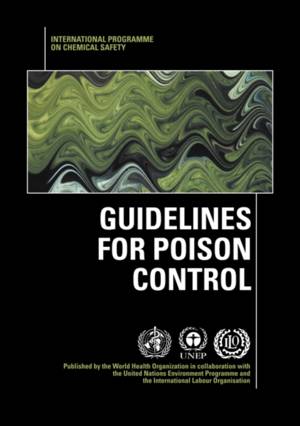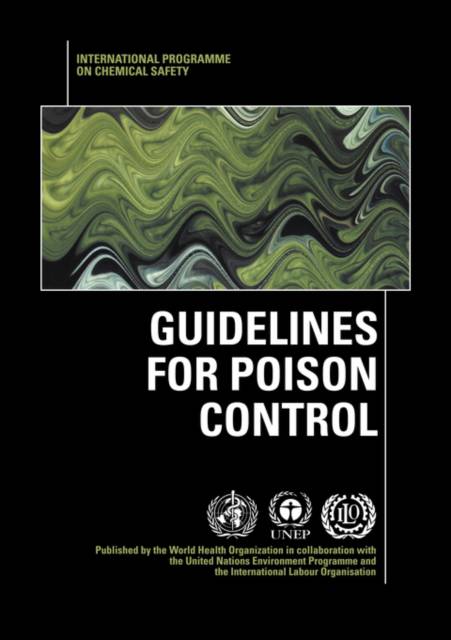
- Afhalen na 1 uur in een winkel met voorraad
- Gratis thuislevering in België vanaf € 30
- Ruim aanbod met 7 miljoen producten
- Afhalen na 1 uur in een winkel met voorraad
- Gratis thuislevering in België vanaf € 30
- Ruim aanbod met 7 miljoen producten
Zoeken
Guidelines for Poison Control
International Program on Chemical Safety, World Health Organization
Paperback | Engels
€ 30,95
+ 61 punten
Omschrijving
Provides authoritative guidelines for the establishment or improvement of national programmes for poison control. Addressed to policy-makers and the administrators of specialized facilities, the book responds to the need for comprehensive advice on the most rationale and effective ways to manage the greatly increased number of poisoned patients seen throughout the world. Strategies for the prevention of poisoning are also described. The guidelines draw on the practical experiences of numerous well-established poison centres in different parts of the world. Although recommended lines of action have universal relevance, the book gives particular attention to the situation in developing countries, where a basic infrastructure for the care of poisoned patients is often absent and special problems arise from the lack of adequate communications, transportation, drugs, and support services. Throughout, emphasis is placed on the role and functions of a poison information centre as a crucial component of any national programme for poison control. The book has nine chapters presented in two parts. Part one provides an overview of the policy issues surrounding decisions to introduce measures, including specialized facilities, for the prevention and management of poisoning. Arguing that a poison information centre should be available in every country, part one also describes the benefits of such centres, outlines their principal functions, and suggests various options for their logical and cost-effective operation. Against this background, part two provides detailed technical advice on how to organize and operate the various facilities and services that make up a comprehensive system for poison control. Separate chapters describe the functions and requirements of information services, clinical services, and analytical toxicological and other laboratory services, and discuss the importance of toxicovigilance as a strategy for prevention. Subsequent chapters explain how to deal with major emergencies involving toxic chemicals, and outline solutions to the problem, encountered in most developing countries, of obtaining essential antidotes. Part two concludes with advice on the design and content of forms for collecting, storing, and reporting data, followed by a detailed list of the main literature required in a poisons information centre. Additional practical information is provided in a series of annexes, which describe a computer software system for the management of poisons data, reproduce several model record and reporting forms, and classify a large number of antidotes and related agents according to their proven effectiveness and urgency of availability. "... For those involved in improving safety, this book is a bible... It is very difficult to be critical of this outstanding work ... an essential reference for all those involved in the use and handling of chemicals. For regulators and those concerned with government policy issues, it should be compulsory reading..." - Chemistry and Industry
Specificaties
Betrokkenen
- Auteur(s):
- Uitgeverij:
Inhoud
- Aantal bladzijden:
- 128
- Taal:
- Engels
Eigenschappen
- Productcode (EAN):
- 9789241544870
- Verschijningsdatum:
- 1/01/1997
- Uitvoering:
- Paperback
- Formaat:
- Trade paperback (VS)
- Afmetingen:
- 210 mm x 297 mm
- Gewicht:
- 326 g

Alleen bij Standaard Boekhandel
+ 61 punten op je klantenkaart van Standaard Boekhandel
Beoordelingen
We publiceren alleen reviews die voldoen aan de voorwaarden voor reviews. Bekijk onze voorwaarden voor reviews.








